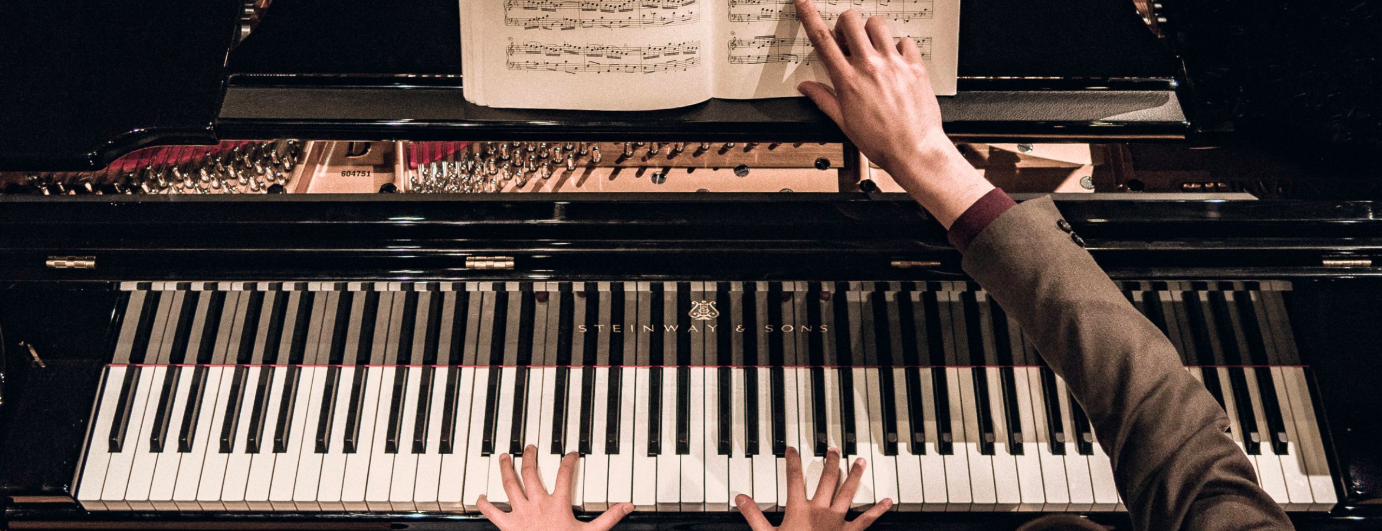|
-Logan Herod
Have you ever wondered if your child should be involved in a choir? Maybe they are already taking voice lessons and love to sing and you want to give them another opportunity to sing each week, or maybe they are already in piano lessons and you are curious if another instrument could be helpful to them. Whatever the reason, there are many benefits to belonging to a part of a choir, including several tangible health benefits. Below, I have listed my top five reasons that your child should join a choir:
And why do I have five reasons listed for joining a choir? Because you need at least five members to form a choir. It’s not too late to sign up for Holiday Choir Classes at Music So Simple! We will rehearse once a week for 45 minutes, and have a final performance of service at a local nursing home.
0 Comments
Blog taken from Steinway in the news blog. Click here to see the original article. FIND THE BEST INSTRUMENT FOR YOUR CHILD. Performing artists and music teachers know that not all pianos are created equal. A high-quality instrument is a must-have for anyone passionate about piano study and performance. Parents researching options for young piano students will often struggle with an important question: should they opt for a digital keyboard or an acoustic piano? Those who want to sufficiently support their child’s musical development and opportunity to properly learn must consider investing in not only the right instructor — but also the right instrument. This is why piano pedagogy experts recommend choosing a high-quality acoustic piano from the very start. Acoustic Heightens Listening Ability A digital keyboard produces notes when digital sound files, stored on a computer chip, are played in response to an electric switch. The result is a deficit in the intensity and beauty of the sound. An acoustic piano produces sound when hammers physically strike strings. This means that the dynamics of the digital sound file will never differ, while the dynamics of the acoustic note will vary depending upon the player’s own touch and style at the keyboard. Students’ ability to develop musicality and artistic mastery is linked to their sensitivity to the unique sound they can produce at the keys. In addition, the colorful timbre changes and complex sustain of an acoustic piano can never truly be produced by a digital keyboard. Acoustic Is More Musically Satisfying Given the increased capability of an acoustic piano to create an endless variance in touch and tone, it’s natural that playing on an acoustic piano is a more musically satisfying experience for students of all ages. With children and young adults, whose attention spans can be limited, a more rewarding experience at the keyboard leads to more time spent in practice and learning. Because it involves the command of dynamic changes and articulations, creating acoustic music is soulful, exciting, and fun. Acoustic Builds Strength and Technique One of the most important benefits of practicing on an acoustic piano is the physical strength it builds. The hammer rotates toward the string and strikes it with varying degrees of velocity to produce sound, offering greater dynamic capabilities and better control for the pianist. In contrast, a digital piano simply lowers a weight — there is no greater or lesser force applied to the string depending on the pianist’s touch. Practice on a digital keyboard can weaken children’s hands and prevent them from developing accurate techniques — and this can lead to a serious deficit in ability and progress. In addition, digital keyboards have a wide discrepancy in the amount of “play” between the front of the keys and the back. When a pianist plays a digital keyboard, the fingers depress the keys at the very front. Conversely, in a high-quality acoustic piano, a pianist can produce notes consistently whether pressing at the front or back of the key. When piano skills increase, players need to be able to use the entire key surface for best expression. The bottom line? High-quality acoustic pianos are vastly superior to digital keyboards. Cost need not be a deterrent; the Steinway-designed Boston and Essex bring the opportunity to own a world-class acoustic piano within financial reach. Blog taken from Steinway in the news blog. Click here to see the original article.
|
Archives
July 2024
Categories
All
|
|
|
MUSIC SO SIMPLE
|


 RSS Feed
RSS Feed